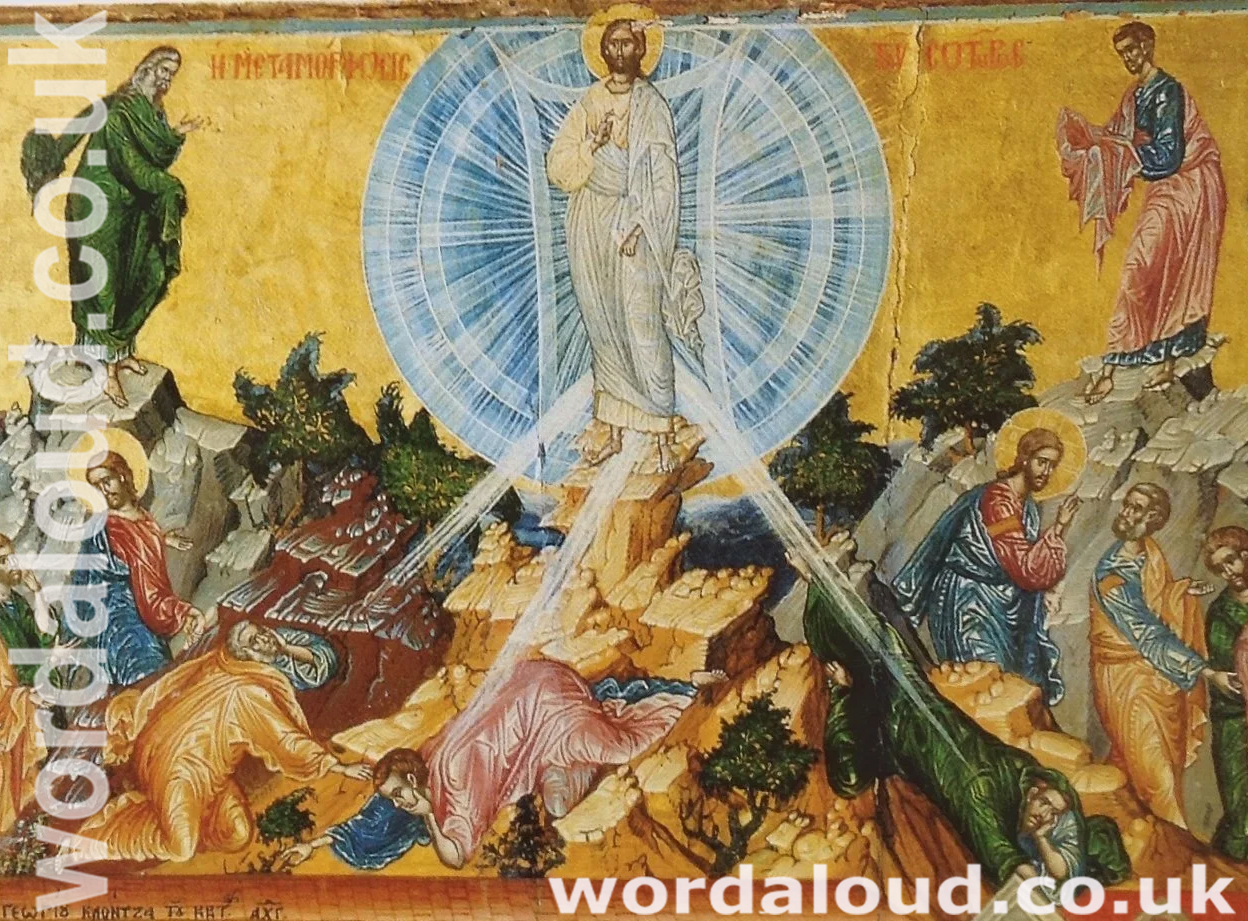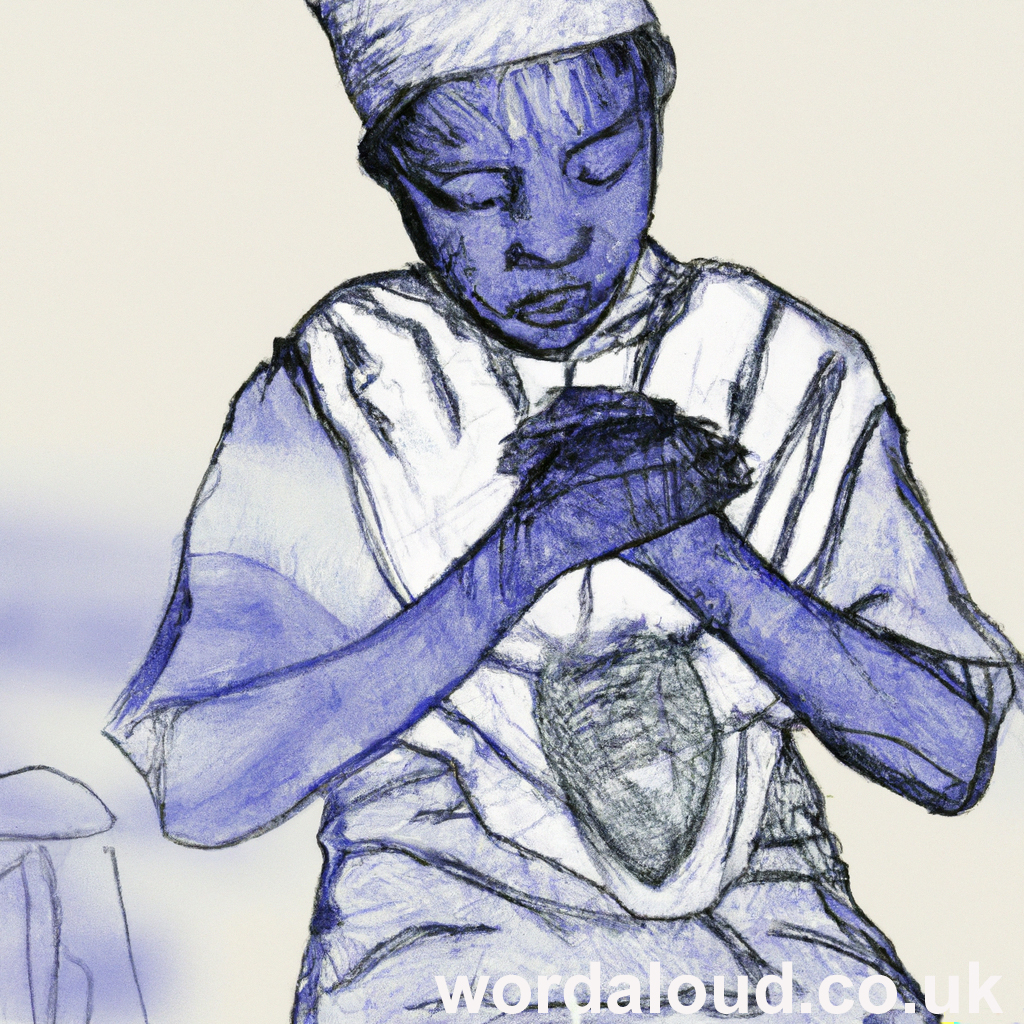Christian Art | Jesus Ministers To The Poor | Christians Are Called To Give Their Riches To The Poor
Office Of Readings | Week 17, Tuesday, Ordinary Time | A Reading From The Homilies Of Saint Basil The Great | Sow Christian Integrity For Yourselves
‘Sow integrity for yourselves.’
Saint Basil the Great (c. 329–379), a principal architect of Eastern monasticism and key figure in the development of Christian doctrine and social ethics, was concerned with the responsibility of Christians to care for the poor. This homily reflects Saint Basil’s characteristic blend of theological insight, ethical exhortation and practical instruction. Saint Basil’s language is urgent, vivid and rhetorical, aimed at moving both heart and conscience.
Human Generosity As Divine Cultivation
Basil opens with a powerful agrarian metaphor: the human being should emulate the earth in fruitfulness. The earth, passive and inanimate, yields crops not for itself but for human benefit. Human beings, endowed with reason and will, should not be less generous. When one gives to the poor, he insists, one ‘bears fruit’ not for others alone but for one’s own eternal benefit.
This metaphor links naturally to a recurrent biblical image: sowing and reaping. Basil explicitly invokes Hosea 10:12: ‘Sow integrity for yourselves.’ Acts of generosity are likened to seeds cast into the field of eternity, with the implication that they will yield a harvest of divine reward. Basil thus connects material charity with spiritual gain. Giving is not loss; it is a kind of saving, an investment in the kingdom to come.
Almsgiving And Eternal Perspective
Basil is unsparing in reminding his audience that material wealth is transitory. Whether one wishes it or not, possessions will be left behind at death. But honour acquired through good works – especially mercy towards the poor – will accompany the soul before God. Here Basil reflects the patristic understanding of almsgiving as a form of righteousness that has eschatological value (cf. Matthew 6:1–4).
The image of the ‘universal judge’ before whom the benefactor will be acclaimed is deeply eschatological. Basil imagines a public commendation, where the angels, saints, and even all humankind bear witness to the deeds of mercy done in life. The emphasis here is not only on personal reward but on the vindication of the just in the eyes of all creation – a motif with biblical roots (cf. Matthew 25:31–40; Revelation 20:12).
Critique Of Misplaced Generosity
Basil then turns to a searing critique of how people waste money on public entertainments – theatrical spectacles, gladiatorial contests, and so forth – which he describes as ‘sickening to see’. He contrasts this with the spiritual reward of those who use their money for the relief of the poor. He appeals not only to Christian duty but also to honour: if people spend lavishly for fleeting applause, how much more fitting it is to give generously for eternal glory.
This rhetorical move is both moral and strategic. Basil is confronting the cultural norms of his day, especially among the wealthy elite of Caesarea. He does not merely demand generosity; he redefines honour and respectability according to Christian values. True nobility lies not in sponsoring games or banquets, but in clothing the naked and feeding the hungry.
Spiritual Poverty Of The Ungenerous
Towards the end of his homily, Basil draws an ironic portrait of the miser. Such a person, he says, avoids the poor, complains of poverty, and becomes ‘ill-humoured and unapproachable’. But their true poverty is not financial but spiritual: ‘You are poor in love, generosity, faith in God and hope of eternal happiness.’ This list functions as a moral diagnosis. The ungenerous have not only failed in charity, but have lost the theological virtues that define Christian life.
Here Basil implicitly contrasts material wealth with the deeper riches of the Gospel. Christian wealth is measured not in coin or property but in virtues – love, faith, and hope – the fruits of a heart transformed by Christ. His warning is clear: without these, even the richest are poor.

A Reading From The Homilies Of Saint Basil The Great | Sow Christian Integrity For Yourselves
Man should be like the earth and bear fruit; he should not let inanimate matter appear to surpass him. The earth bears crops for your benefit, not for its own, but when you give to the poor, you are bearing fruit which you will gather in for yourself, since the reward for good deeds goes to those who perform them. Give to a hungry man, and what you give becomes yours, and indeed it returns to you with interest. As the sower profits from wheat that falls onto the ground, so will you profit greatly in the world to come from the bread that you place before a hungry man. Your husbandry must be the sowing of heavenly seed: Sow integrity for yourselves, says Scripture.
You are going to leave your money behind you here whether you wish to or not. On the other hand, you will take with you to the Lord the honor that you have won through good works. In the presence of the universal judge, all the people will surround you, acclaim you as a public benefactor, and tell of your generosity and kindness.
Do you not see how people throw away their wealth on theatrical performances, boxing contests, mimes and fights between men and wild beasts, which are sickening to see, all for the sake of fleeting honor and popular applause? If you are miserly with your money, how can you expect any similar honor? Your reward for the right use of the things of this world will be everlasting glory, a crown of righteousness, and the kingdom of heaven; God will welcome you, the angels will praise you, all men who have existed since the world began will call you blessed. Do you care nothing for these things, and spurn the hopes that lie in the future for the sake of your present enjoyment? Come, distribute your wealth freely, give generously to those who are in need. Earn for yourself the psalmist’s praise: He gave freely to the poor; his righteousness will endure for ever.
How grateful you should be to your own benefactor; how you should beam with joy at the honor of having other people come to your door, instead of being obliged to go to theirs! But you are now ill-humored and unapproachable; you avoid meeting people, in case you might be forced to loosen your purse-strings even a little. You can say only one thing: ‘I have nothing to give you. I am only a poor man.’ A poor man you certain are, and destitute of all real riches; you are poor in love, generosity, faith in God and hope of eternal happiness.
Christian Prayer With Jesus Christ
Lord God, source of all mercy and giver of every good gift,
you have taught us through your Son that it is more blessed to give than to receive.
Teach us to sow integrity, to give generously, and to see in each person your own image.
Free us from attachment to possessions, and increase in us a desire for righteousness.
May our acts of charity bear fruit for eternal life,
and may we never turn away from those in need.
Through Christ our Lord. Amen.
Glossary Of Christian Terms
Almsgiving – The act of giving money or goods to the poor, considered a key Christian duty.
Eschatology – The part of theology concerned with death, judgement, and the final destiny of the soul and humankind.
Integrity – In this context, moral uprightness and consistency with God’s law.
Righteousness – Living in accordance with divine or moral law. Often synonymous with holiness or justice in Scripture.
Psalmist – The author or speaker of a psalm, often referring to King David.
Basiliad – A large charitable complex founded by Saint Basil in Caesarea to serve the sick, poor, and travellers.








